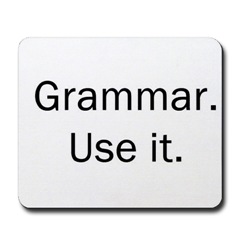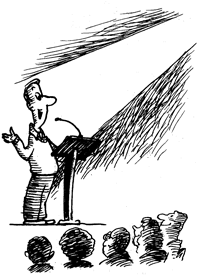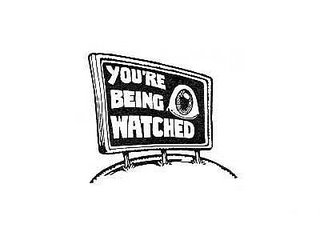
Wow.
No, really. Wow.
This show was AMAZING. It was also a lot bigger than I originally thought which was good because we attended the exhibit with a SHIT LOAD of high school students, many of whom were in possession of some extremely bad manners. But anyway...
I was fascinated by this exhibit on many different levels. For starters, it's just dumbfounding. To live inside your own skin is one thing - to feel what you feel and to know that there's more to you than just what you can see; to feel your heart beat and to breathe in and out and to stretch or to experience pain or to be still and quiet and just BE is one thing. To actually SEE what's under your skin is something else entirely.
I have always been intensely curious about what makes up my body. I always want to see my own x-rays and MRIs. While I may get a little woozy watching the initial incision, I am glued to the t.v. when watching programs or news segments about medical procedures - hip

replacements and bypass surgery and the like (though I shy away from plastics procedures - not sure why, but they gross me out). I want to understand what all the results for my chem. panels mean and I ask my doctor to explain my cholesterol levels and how any medications they prescribe to me work. This exhibit satisfied that curiosity in a way that was at the same time immensely satisfying and insanely frustrating. I left knowing that I'd seen more than I'd ever seen before but still wanting to see MORE.
Being a fitness instructor, I have at least a passing familiarity with how we humans are put together. I understand, in very basic terms, how this muscle is connected to that bone, how this muscle works with / against that muscle to move us in particular ways, and how to effectively and safely challenge those muscles to do their best work and keep us as healthy as possible. This exhibit brought that knowledge a little bit closer to comprehensive in me - it was far more complete and understandable to see the muscles as they actually are - connected here and there, layered over these bones and these underlying muscles - than any drawing, however correct, could ever be.

I was surprised by a lot of things. I had a lot of false impressions about the human frame. I thought that our femur was a lot thicker than it actually is, for example. I was under the impression that there were a lot more bones in the ankle than there actually are. I did not know that there are bands of something - I'm not sure what, though I expect it's cartilage - correct me if you know, please - that encircle our wrists and ankles to hold back bands of nerves. I thought our spinal cord was a lot thicker than it is. Seeing these things in 3D, unchanged from their original form but for their preservation, was enlightening.

We are AMAZING creatures. Bone and blood and muscle and nerve and fat and tendon and skin - I have to admit that it would be difficult to look at this exhibit and not believe that we were intelligently created. I believe in evolution, I truly do - I’m not an Adam and Eve kind of gal - but there's got to be a plan behind it. We had to start somewhere, and to get to where we are - a marvel of systems and balance and motion - is nothing short of miraculous.

I've heard that there's a lot of controversy around this exhibit. I haven’t read any of it, so I can’t comment intelligently about it one way or another, but I have to say here that I found nothing at all objectionable to the show. The bodies are donated willingly - no body was taken without its OWNER’S permission; I couldn’t donate my husband, for example, without his living consent, though I’m not sure how the children in the exhibit were obtained. There’s nothing lewd or unseemly about the bodies - they’re posed tastefully and in ways that really demonstrate the wonder of machinery that our bodies are (though the high school kids were

all about the plasticized penises and labia). There’s no preachiness in the exhibit; though there were a fair number of smoker’s lungs and a display of what obesity does to the internal organs, neither of these elements was presented in anything other than a factual way. In short, it is (as far as my non-medically educated self could tell) a very well done, ethically responsible display.
The exhibit opens with a mural that explains that there’s no personal information about the donors - their names and causes of death are never mentioned - because it’s not about the people they used to be. Honestly, I never found myself thinking of the people these bodies used to be though, at the end, I did send up a silent prayer of thanksgiving to them for offering up their physical selves so that I could experience this unique opportunity to see under the surface.
My friend mentioned that she knows someone who is entirely opposed to this exhibit because she finds it morbid and somehow disrespectful to the donors. I’m not sure I could disagree more. For me, a person ceases to be a person when their heart stops beating and the spirit/body connection is broken. I’ve thought about this a lot - I think it’s interesting that we refer to our bodies as something we own - MY arm or MY head - rather than something we ARE. I am not my body. I can change my hair or lose my sight or amputate an arm or donate a kidney and I’d still be me. I remember thinking of a connection to a Star Trek series - Next Generation - where the Klingon on board informed crew mates to dispose of a fallen comrade’s body however they saw fit because, as he put it, “it is just an empty shell.” A very intricate, complex, and wondrous shell, but without the spirit, empty nonetheless.
If this exhibit ever comes within striking distance of you, I HIGHLY recommend you go see it, even if you’re faint-of-heart. It’s not icky, it’s not creepy, and it’s in no way gratuitous. You’ll learn a lot, and you’ll come away with a much greater appreciation for the bag of water and protein that houses your soul for this journey.

 Joe, my boss at Tiny Community College, called this afternoon and left a message on my machine.
Joe, my boss at Tiny Community College, called this afternoon and left a message on my machine.
































